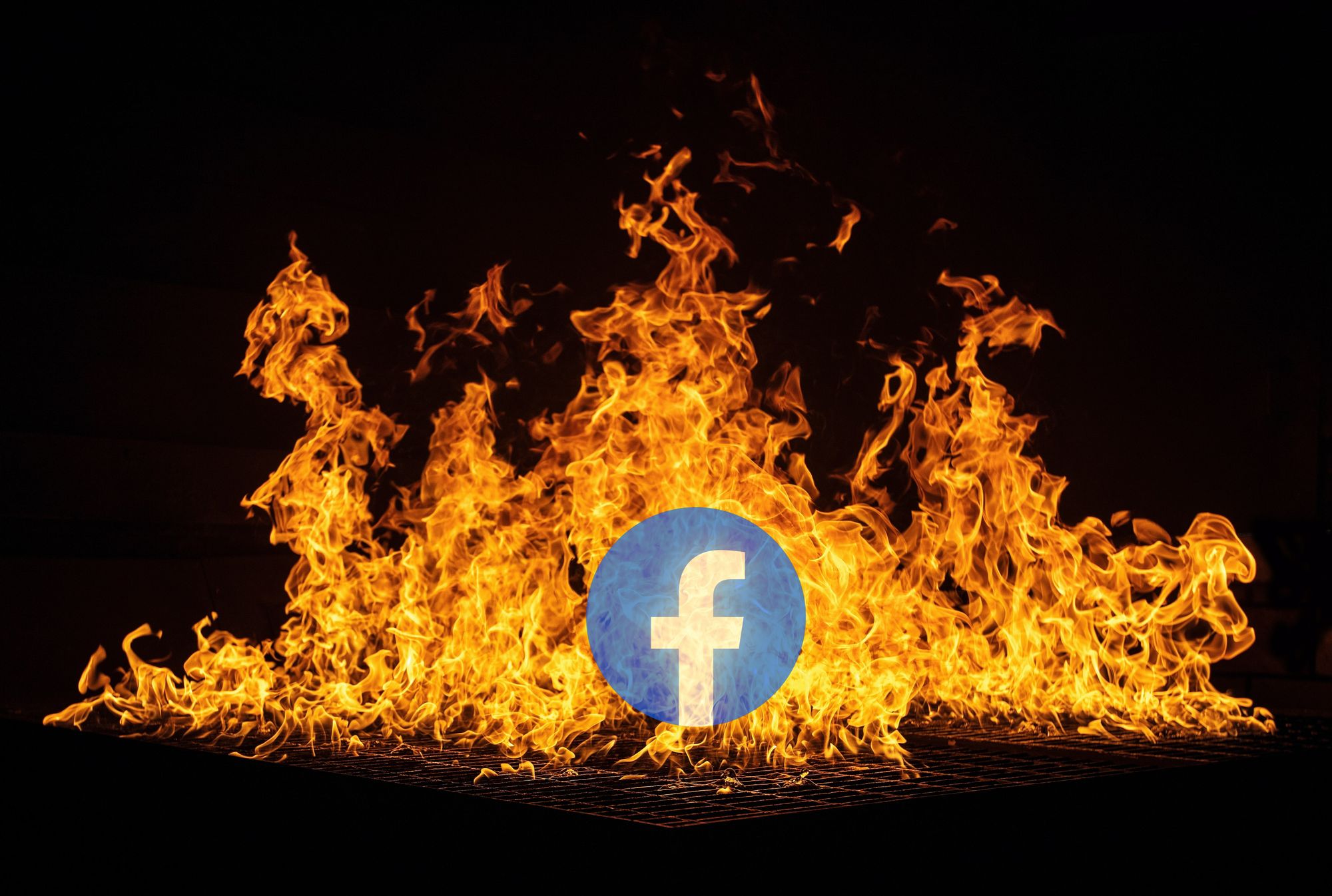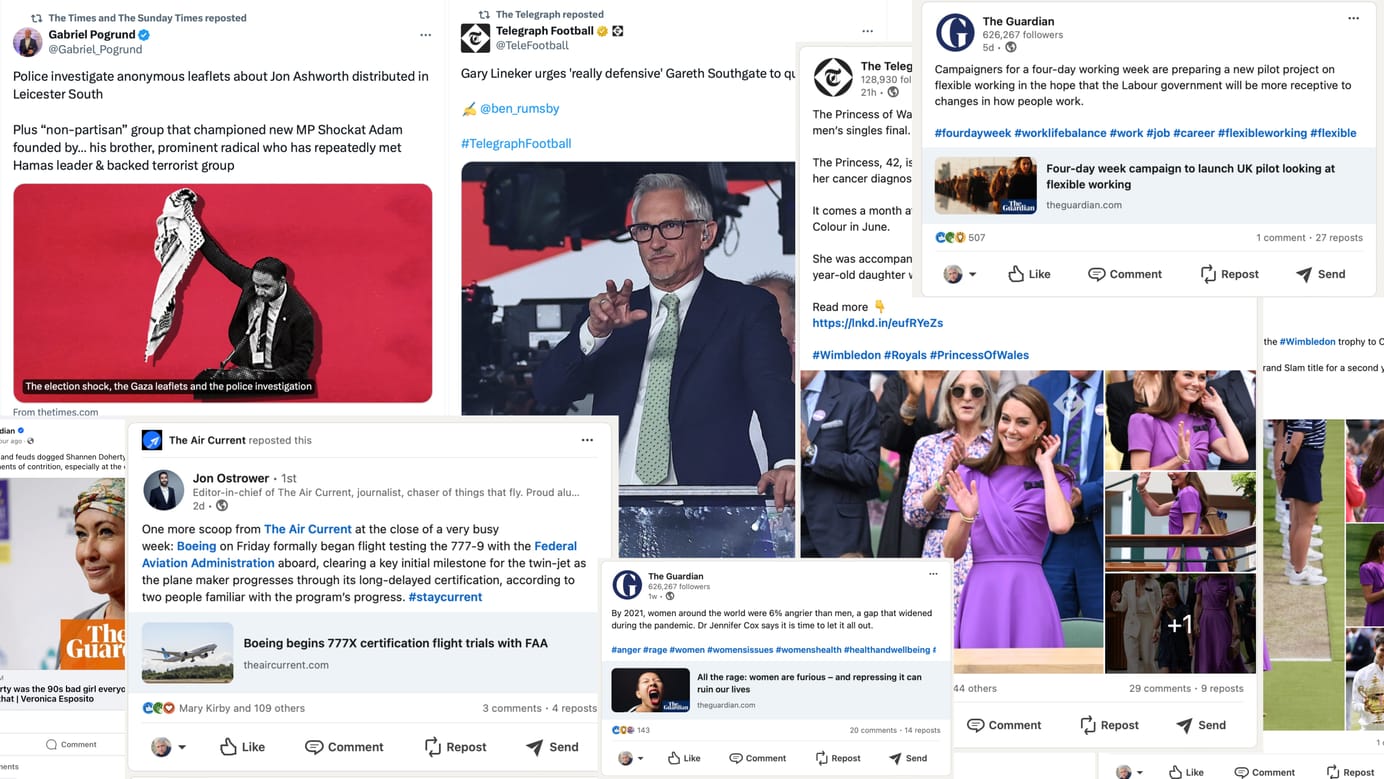
Single point of (Facebook) failure
Facebook has wiped itself, WhatsApp and Instagram off the internet. And the longer they stay down, the more some publishers will be suffering…
Just in case you haven’t noticed, all the major Facebook services have been down for some hours now. Not just the big blue site itself, but also Instagram and WhatsApp, which not everyone realises is a Facebook property. Even my wife, who generally rejects all things social media, has noticed because she’s in several WhatsApp groups that have gone suddenly, blessedly quiet.
Twitter, which is still very much up, despite a few wobbles earlier, is full of memes and dunks on Facebook. In fact, for once, it's quite fun to be there. However, given that some publications depend heavily on Facebook for their traffic, this could actually be serious for them. As the hours tick by, and the traffic isn’t coming, they will be getting nervous…
Others rely on WhatsApp for co-ordinating journalists — this must be having a serious impact on their ability to communicate fluidly with remote staff. (I wonder how the hacks and politicians at the Tory Party Conference are managing with their central comms tools down…).
And because not everything in the world is about journalism (*gasp*), let’s remember that in some countries, WhatsApp pretty much is the internet.
Not for nothing but in many places — including Israel and Palestine — WhatsApp is used as the de facto phone and text messaging platform. Ostensibly, a utility is down right now for millions of people. The billionth reason to break down and regulate Facebook. https://t.co/tclzJVXkEZ
— Abraham Gutman 🔥 אברהם גוטמן (@abgutman) October 4, 2021
There may be more serious problems in store for those countries, if this turns into a long-term outage — and early indications are that it might. It seems to be a problem with Facebook's Boundary Gateway Protocol, which may not be easy to resolve.
So, it turns out that having three of the biggest services on the internet owned by the same company and run on the same infrastructure might not be the best idea in the world. It’s turned a resilient system into a fragile one. Everyone who has come to rely on this singular company’s services will be suffering tonight.
And it’s our own damn fault.
Happily locking ourselves in
The internet was built as a decentralised system. It’s designed to route around points of failure. And in the early, more Wild West years, it boomed because of that. Our internet experience was a mess of websites and blogs and chat rooms and email discussion lists. But slowly, over time, that changed. Well-funded businesses eschewed open protocols, and locked up great chunks of human communication for their own financial benefit.
And nobody has been better at that than Mark Zuckerberg. He’s slowly rebuilt the internet within his own walled garden, and many of us have followed him into there. We’ve allowed ourselves — both as businesses and as individuals — to become dependent on these centralised services. With that centralisation has come user convenience — but increased fragility.
Anyone can send an email to anyone else. But WhatsApp being down has choked off a whole bunch of conversations.
Paying the gatekeeper’s accidental price
And tonight, many businesses are paying the price of falling for the Zuckerberg seduction. If you’re a retailer whose sales mainly come through Instagram — you’re losing money. If you’re an influencer who is paid for collabs on these platforms — well, you’re scheduled posts aren’t going to be doing you much good today.
If you’re in the audience team of a publication heavily dependent on Facebook for traffic — I feel for you. But you’re also the architect of your own misfortune because you’ve let yourself become dependent on a single source of traffic that you don’t control.
And rule 1 of audience strategy is this:
diversify your acquisition and engagement channels as widely as you can.
It’s not just Facebook
Now, it’s easy to dunk on Facebook. It’s been something of a fortnight for it… But other platforms are just as bad.
If you’re a successful YouTuber, or a publisher that earns substantial revenue from the platform, imagine YouTube going down for 12 hours. How much is that going to cost you in lost revenue? If your traffic is driven solely by search, imagine Google going down for half a day. How does that help you meet your targets?
More realistically, imagine a major algorithm shift on the platform. That can — and has — killed businesses in the past, both on Facebook and on Google. And then think about how Substack is manoeuvring to make itself the central hub for all things newsletter, and think a little more about central points of failure…
Diversification is sustainability
For all the amusing dunking on Facebook happening on Twitter right now, there’s a serious lesson underlying today’s impact. Never, ever rely on a single company for your traffic, your community or your comms. Diversify the hell out of your reader acquisition and your reader engagement. Think of back-up channels and alternative ways of reaching people when something falls over.
Whenever one tool — be it search, or social, or even newsletters — becomes too dominant, put time and effort into balancing your mix.
A publication with a healthy mix of acquisition and engagement channels is a sustainable one. A business dependent on a single channel only exists at the whim of that platform — and of the skill of the technologists who run it.
To everyone whom I told that they shouldn’t rely solely on Facebook-owned services for traffic, community or comms, but who ignored me… pic.twitter.com/RBilMwMwRe
— Adam Tinworth (@adders) October 4, 2021
Sign up for e-mail updates
Join the newsletter to receive the latest posts in your inbox.










